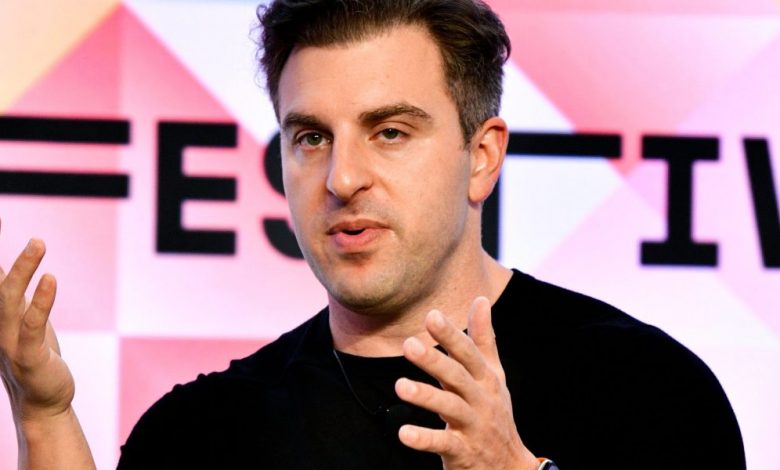How the Airbnb CEO’s job cuts stand in stark contrast to Meta and Twitter

Barely two months into the pandemic, Airbnb laid off a quarter of its employees — 1,900 people. The company, which ended the year with an IPO, had lost about 80% of its business to the pandemic, says CEO Brian Chesky wealth in conversation on Wednesday.
“We didn’t know when [the business] came back,” he says.
Layoffs have never been terrible. Maybe they score differently because it destroys the corporate illusion that work is like family; Because when it comes to cutting costs, work is little more than dollar signs and decimals.
Even Chesky, who along with co-founders Nathan Blecharczyk and Joe Gebbia built Airbnb on the idea of belonging and a sense of conscious morality often at odds with other Silicon Valley darlings, acknowledged the split.
“How does a company whose mission is focused on belonging tell thousands of people they can’t be with the company anymore?” he said during a May 2020 appearance on the podcast Get out of the crisis. “It was a very, very difficult thing.”
The recent spate of layoffs in the tech world has highlighted just how inherently callous — bordering on the cruelty in some cases — layoffs can be. In November alone, tech companies announced 31,200 job cuts, according to Challenger, Gray & Christmas, a firm that advises employers on layoffs.
Snap, Coinbase, Robinhood, and Tesla, among others, have all announced layoffs in recent months. Amazon also plans to lay off thousands of workers. However, none have garnered the attention Meta has received more recently, and to an even greater extent Twitter. Both have been criticized for either the seemingly insensitive nature of the layoffs (Twitter’s case) or the careless preparation for the layoffs (Meta’s case).
Both might have been better off taking a page out of Airbnb’s dismissal book.
Musk lacked compassion
Airbnb was praised for how it handled the 2020 layoffs. A memo Chesky wrote expressing his love for his co-workers was seen as compassionate, empathetic, and a lesson in leadership and communication.
“We did it in a kind of novel way because I did a couple of things: The first thing I did was I wrote this letter, which was very transparent. We went step by step what happened; how we got here,” Chesky says, Democratic noting that recent tech layoffs have run the spectrum from good to bad.
Experts say it’s best to cut deep and once, show empathy, offer support, and be open and transparent about the company’s direction. A generous severance package doesn’t hurt either.
In addition to offering a sizable severance package and health benefits, Chesky seemed proudest of the alumni directory, which allowed laid-off employees to hear from recruiters from other companies looking to hire through Airbnb and solicit offers for new jobs.
At the other end of the spectrum, Musk has been at war with the remaining half of the employees he hasn’t laid off, with little more than an unsigned email ending up in inboxes after the work day (others found out they were unemployed when they couldn’t log into their company’s email or messaging system) and draw a relatively hard line about increasing productivity and getting back to the office.
A senior Twitter engineer was apparently fired via a tweet from Elon Musk after the two briefly argued about Twitter on Android on the app.
“With layoffs, you should just make sure that you’re doing more than expected, that you’re incredibly compassionate, and that you’re allowing people to leave the company with dignity,” says Chesky.
Zuckerberg was ‘too optimistic’
On a different spectrum, Chesky also says that “companies have probably been overly optimistic over the last two years,” a mistake Meta CEO Mark Zuckerberg made when he announced about 11,000 layoffs earlier this month.
“They hired too many people because they thought what happened in the last two years would happen forever,” says Chesky. “There has been a tremendous shift from retail and physical to digital. But I think as people started spending more and more time in front of screens, they were like, ‘This can’t be my whole life, I want to get out of the house.'”
Airbnb has stayed relatively slim for its size, says Chesky. The company employs about 6,000 people and planned to increase the workforce by just about 7% this year before the economy took a turn.
“Sometimes the fastest way to grow is to have really small teams that can move very quickly and nimbly,” says Chesky. “We don’t have to change much anymore, business is going very well. We tend not to hit the brakes, rather step on the gas.”
Our new weekly Impact Report newsletter will examine how ESG news and trends are shaping the roles and responsibilities of today’s leaders – and how best to address these challenges. Subscribe here.



